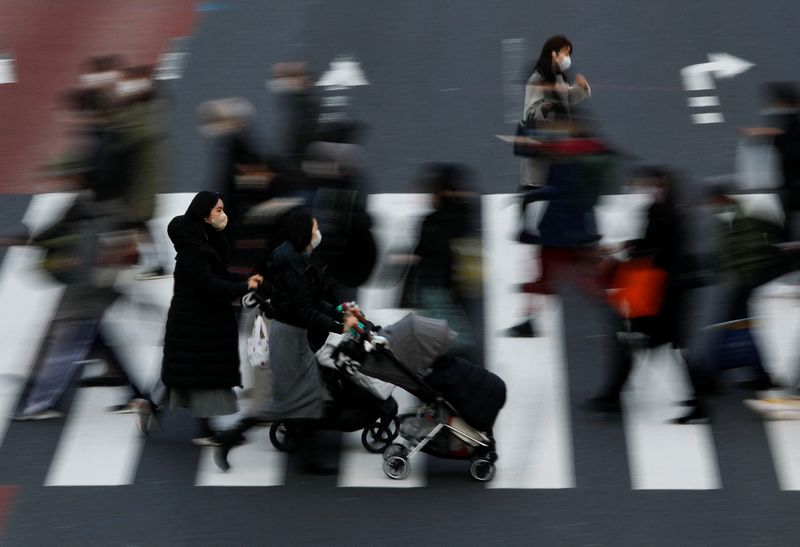By Kantaro Komiya
TOKYO (Reuters) - Japan's trade unions are demanding the biggest wage hike in more than two decades at their spring pay negotiations, a national labour tally showed on Friday, as the government and central bank urge firms to raise workers' wages to support the economy.
A survey of more than 2,000 unions nationwide showed an average 4.49% raise request for this year, first time above 4% since 1998's 4.36%, according to the Japanese Trade Union Confederation (JTUC). This is also the highest since the mid-1990s, a statement by JTUC shows.
Workers in the world's third-largest economy have been emboldened by policymakers' calls for wage hikes to sustain a frail post-pandemic economic recovery threatened by a four-decade-high inflation.
Despite the higher cost burden, major Japanese firms have promised large pay increases to retain skilled workers amid labour crunch.
World's largest car maker Toyota last week accepted a union demand for the biggest base salary growth in 20 years, followed by rival Honda's agreement with its union requesting a 5% pay increase.
Gaming giant Nintendo said it will lift workers' base pay by 10%, while fashion brand Uniqlo parent Fast Retailing announced an up to 40% raise.
The JTUC preliminary survey showed the average union demand during this year's annual labour talks, called "shunto" in Japanese, was much larger than 2022's 2.97%.
JTUC, commonly known as "Rengo", is the largest labour organisation in the country representing about seven million workers. Although those working at smaller businesses, on temporary terms or without union membership tend to receive a much smaller, if not flat, pay growth, the result of shunto is seen as a harbinger of the country's wage trends.
According to JTUC, its unions and companies last year agreed on average 2.07% wage hikes, higher than in previous two years but still short of Prime Minister Fumio Kishida's request for a bigger increase to spur growth.

As of January, Japan Economic Research Center estimated big firms would offer pay hikes of 2.85% on average for the year starting April, which would be the fastest pay rises since 1997.
Bank of Japan officials have said the outcome of the wage hike talks is an important criterion to determine the future course of its ultra-loose monetary policy.